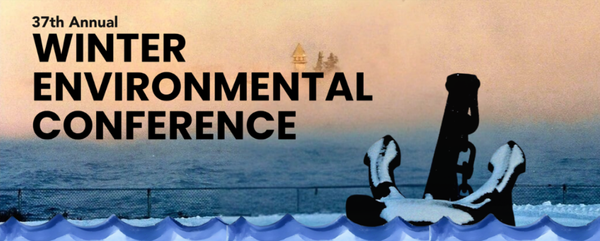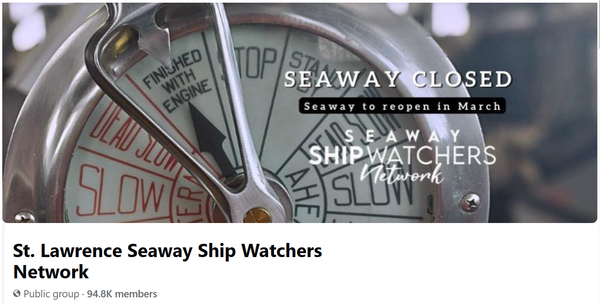12 boat safety tips that might just save your child’s life
by: 1000 Islands
Editor's Note: This article was submitted in the hopes that we would publish it. As Editor, initially, I wasn’t sure about publishing it since it came from a foreign company rather than a local island resident. The request came after this company found another boating safety article, written by Kara Lynn Dunn, in
2017. Several other websites have also published this article, but given the importance of the subject, it’s an honour to link it to TI Life.
And, remembering my youth on Lac St. Louis in Ville de Lery, QC, we had a sailing and swimming coach named Mr. Urmson. He kept a whistle around his neck and when we heard it, we knew some child had been caught running on the dock. So I would suggest that the children running in the the photograph are
breaking rule #1.
Please pay attention – this article is important!
12 boat safety tips that might just save your child’s life
June 21, 2022
Submitted by Ningbo Haishu, Hongkang Outdoor Industry & Trade Co., Ltd (HK)
Going on a fishing trip by boat can be a fascinating experience for kids. They are usually intrigued by various things, including the captain’s work, smells, colors, and sounds related to the activity. However, without proper planning, an accident where a child is involved will most certainly turn a great outing into a disaster.
Without proper safety precautions on a boat, children can suffer serious injury. For example, in August 2021, the Tampa Bay Times reported that an injured child had to be airlifted to hospital after falling off a boat, injuring his leg and head. In 2015, a nine-year-old had to be airlifted to hospital following a boating incident where eight people were injured on Thompson Lake in Otisfield.
How can one have fun with the kids and still ensure that an accident like the two mentioned above doesn’t occur? It’s pretty simple if you observe the following 12 safety tips.
1 Teach the kids to swim early
Even with the best precautions, a boating accident can still happen. Therefore, if you and your family spend a lot of time boating, it’s vital to teach the kids to swim early.
Swim England provides some reasons why you should teach your kids to swim and notes that “The most important reason is that swimming is the only sport which can save your child’s life.”
If you don’t know where to start when teaching your children to swim, you can look at the American Red Cross Training Services. They offer swimming lessons for kids.
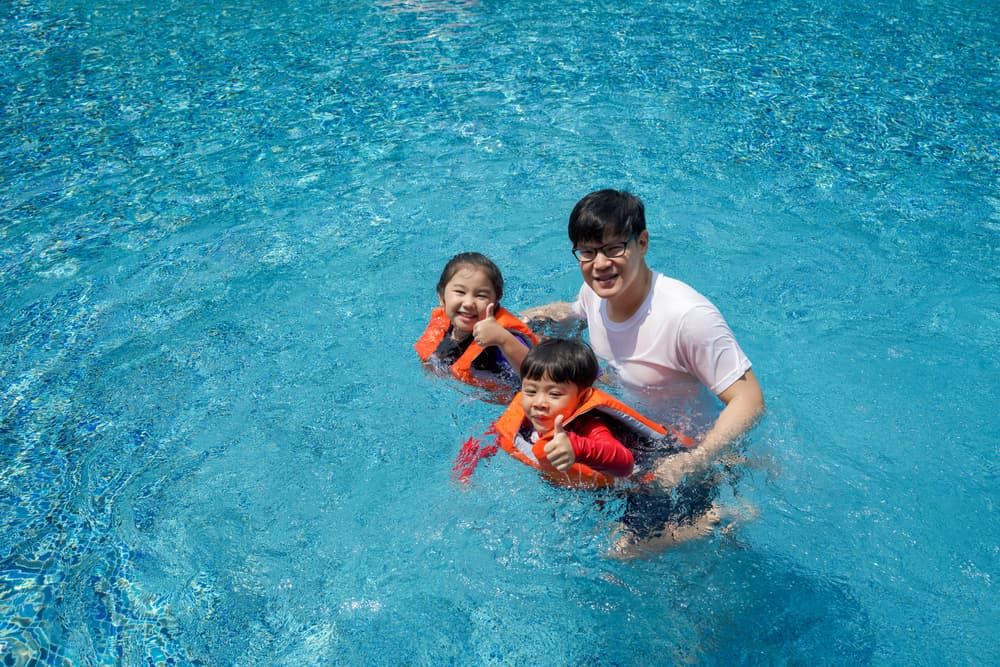
2 Consider a boating course
A boating course is essential because it familiarizes you and your kids with the boating rules.
Takemefishing.org presents some insights into why taking a boat safety course is important. According to the site, “Boating safety education is important for everyone out on the water” because it can help reduce the chances of personal injury and damage to property.
Where can you get a boating course? There are plenty of private and public boating courses around. Although an online boating safety course may seem counter-intuitive, many courses are available online.
Most states like California provide resources listing approved boating safety courses.
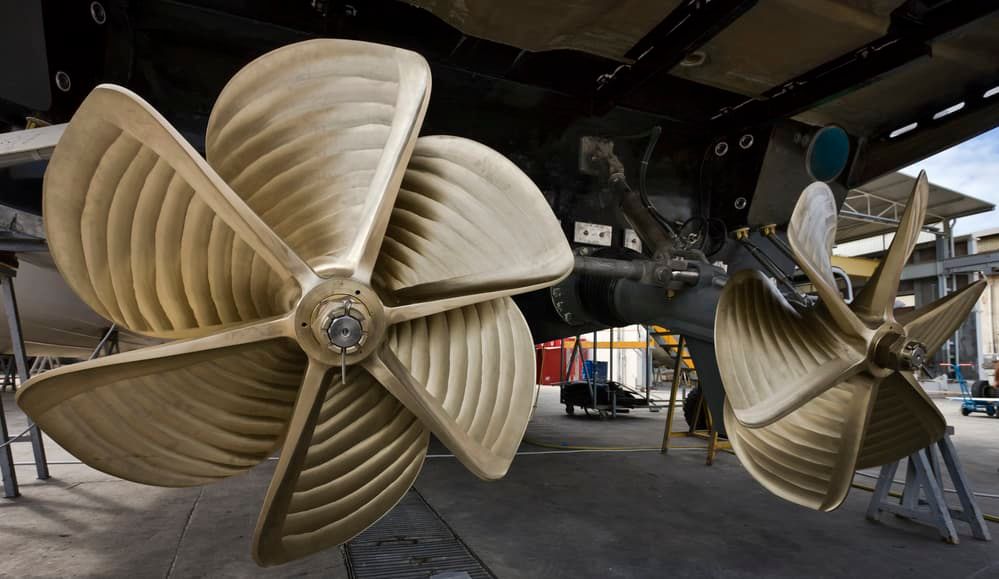
3 Show kids the parts of a boat
Propellers cause nearly one-fifth of boating injuries. An article published in the Annals of Plastic Surgery journal reports, “Propeller injuries have an overall fatality rate of 15% to 17%, and a similar rate of major amputations.”
Your kids will not know the danger propellers pose unless you warn them about it. This can best be achieved by ensuring that the kids know the different parts of the boat and the danger they pose.
During the trip, always keep an eye on the kids to ensure that they do not get too close to the propeller, even when it is not in motion. Also, make sure that the engine is off, and the propeller has come to a complete stop before the kids leave the boat.
4 Teach kids to follow boating emergency procedures
Whether you and the kids have done a boating course or are good swimmers, it’s important to recap the emergency procedures before every boating trip to ensure that everyone remembers them – should the situation suddenly take an unexpected direction.
The California State Parks Division of Boating and Waterways (DBW) has a valuable resource for teaching kids to observe emergency procedures:
• If you need to swim to safety, swim near others.
• Put on a life jacket as soon as you get into the boat.
• Keep yourself afloat until someone comes to rescue you.
• Do not jump into the water from the boat unless you know that it’s safe to do so and you are appropriately trained.
• If you are stranded, stay with your boat because it’s easier to find a boat than a single person in a massive body of water.
5 Teach kids to how to call for help
Anything can happen on a boating trip, including the adult in control of the boat being incapacitated. This is why you should teach the kids to use the boat’s communication equipment to call for help, especially the radio.
Apart from this, also keep a card in the vessel with simple instructions that kids can follow when stranded offshore.
6 Ensure the kids are fit to travel
Many parents would not take a child on a trip without ensuring that the kid is fit to travel. This should apply to all your boating trips. Sometimes determining whether the child is fit to travel could be as simple as asking them if they are ok.
The Centers for Diseases Control and Prevention advises that, during the trip, “Children should not swim in fresh, unchlorinated water such as lakes or ponds, because some infections (such as schistosomiasis and leptospirosis) are spread by contact with fresh water.”
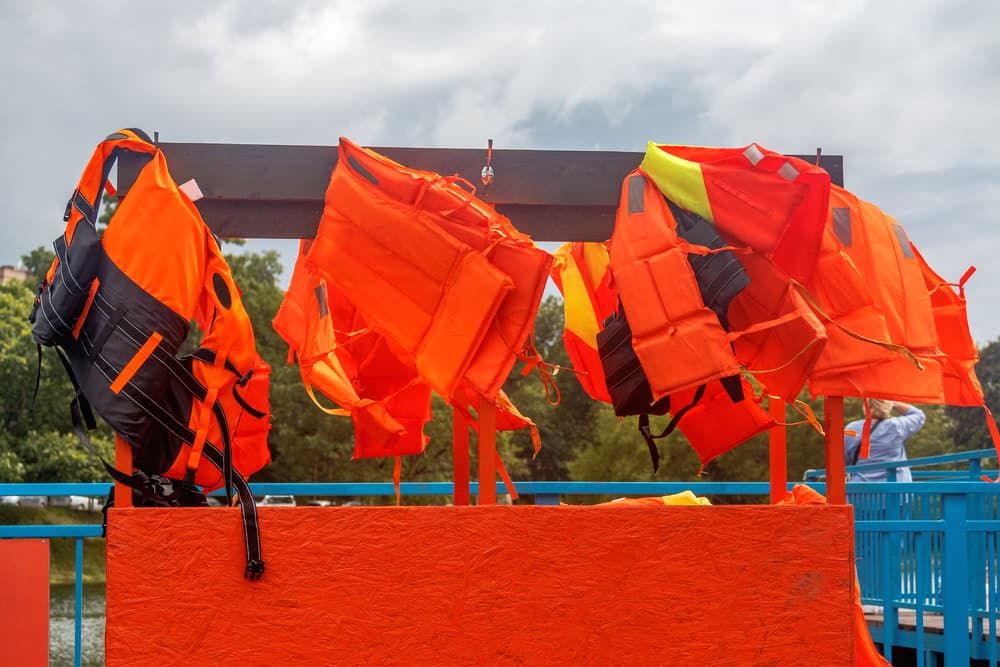
7 Check the vessel
No matter how well you follow the other 13 tips in this guide, your outing will simply be an accident waiting to happen if your vessel is not safe.
Boat-ed.com is a website delegated by the Canadian government to publish safe boating materials and offer certified training. The site advises that you focus on three areas when checking the boat: boat condition, equipment, and general preparation.
Checking the boat condition involves ensuring that the integrity and structure of the boat are sound and all electronic equipment works. Above all, you will need to ensure that you have the fuel to get the boat to the shore safely.
Regarding equipment, Boat-ed.com suggests that you should count the number of life jackets to ensure that there is enough for everyone. You will also need to ensure that you have navigation equipment or official nautical charts.
8 Never start a trip without checking the weather
Whether you are boating with the kids or not, the Coast Guard Foundation’s advice is clear: “You should never leave dock without first checking the local weather forecast.”
However, the weather forecast will not always be accurate. The Coast Guard Foundation, therefore, also lists signs you should look out for that indicate the weather is about to change for the worst:
• Flat clouds getting lower and thicker
• Puffy, vertically rising clouds getting higher
• Dark clouds, particularly to the west/southwest
• A sudden temperature drop
• A halo around the sun
• A sudden change in the direction of the wind or faster winds
• Heavy seas
The same source says that you should check the barometer every two to three hours if you have one on board. It adds, “A rising barometer indicates fair weather and a rise in wind velocity; a falling barometer indicates rain approaching.”
9 Have appropriate safety gear
Before every boating trip, remember to obtain safety gear. If your gear remains in the boat between trips, ensure that it is in good order before starting your boating trip with the kids.
Discoverboating.com lists some of the most important safety equipment you need for every trip:
• Medical kit
• Anchor with a line to keep the boat in one place as you wait for help in the case of an emergency
• A bucket or bailing device to dewater and keep the vessel afloat
• Cellphone
• VHF radio to call for help
• Knife to cut a line around a ruined propeller
• Flashlight
• Skier or diver down flag
Other things you may consider taking along are food and enough freshwater. This could help if you are stranded offshore for an extended period.
10 Harness the kids
No matter how meticulous you are, it’s not always easy to keep an eye on kids 24/7. Without something to hold them inside the boat, a child could fall overboard while your vessel is at high speed.
Sail-World.com advises that safety harnesses are especially important for toddlers because kids have a lot of energy but may not understand the importance of following instructions.
11 Wear the engine cut-off switch
The U.S. Coast Guard’s Boating Safety Division defines an engine cut-off switch as a “safety mechanism used to shut off propulsion machinery when the operator is displaced from the helm.”
Explaining why you should always wear your engine cut-off switch, the U.S. Coast Guard’s Boating Safety Division notes that boats sometimes make forceful movements that can eject the operator from the helm area or even throw them out of the boat.
If this happens, the vessel becomes uncontrollable, and there is no guessing what types of accidents it can cause when kids are left alone in the boat. If you wear your engine cut-off switch, the boat will lose power as soon as you are ejected, making it possible to regain control.
12 Never drink and boat
We are all familiar with the dangers of drinking and driving. The same risks apply to drinking and boating.
The YouTube channel NASBLASafeBoating presents reasons why you should not drink and boat, especially when you have kids on board: “Operating a boat requires attention and good judgment.” We all know that the terms drinking and good judgment don’t often belong in the same sentence.
Check out the YouTube video from NASBLASafeBoating to see what can happen when you drink and boat.
Source: https://hknb.com/12-boat-safety-tips-that-might-just-save-your-childs-life/
ABOUT HONGKANG
Ningbo Haishu HongKang outdoor industry & trade Co.,Ltd. is a professional electric trolling motor manufacturer. No. 58 Xiufeng Road, Gaoqiao Industry Zone. Yinzhou District Ningbo, China.


